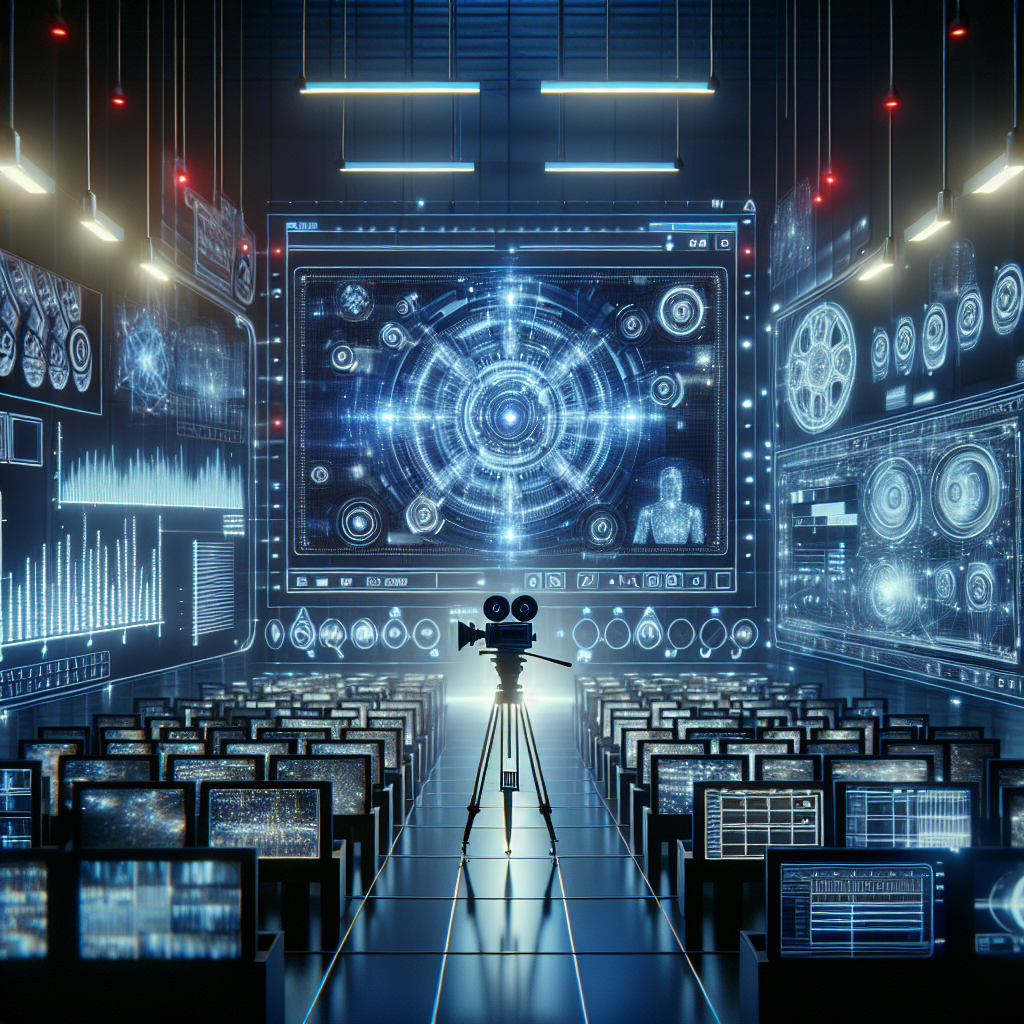Generative AI in Video Production: A New Frontier
In recent years, the field of artificial intelligence (AI) has seen tremendous advancements, leading to the development of various applications across different industries. One of the most exciting areas of AI that has been gaining significant traction is generative AI, particularly in video production. Generative AI refers to the use of algorithms to generate new content, such as images, videos, and text, that mimics the style and characteristics of existing data.
Generative AI in video production has opened up a whole new world of possibilities for filmmakers, content creators, and other professionals in the media and entertainment industry. By leveraging the power of AI, video production can be streamlined, automated, and enhanced in ways that were once unimaginable. From creating realistic visual effects to generating entire scenes and storylines, generative AI is revolutionizing the way videos are produced.
One of the most notable applications of generative AI in video production is the creation of deepfake videos. Deepfakes are manipulated videos that use AI algorithms to superimpose the face of one person onto another, creating a realistic and often convincing result. While deepfakes have raised concerns about the potential misuse of AI technology, they also showcase the incredible capabilities of generative AI in video production.
Another key application of generative AI in video production is the generation of virtual sets and backgrounds. By using AI algorithms to create realistic virtual environments, filmmakers can reduce the need for physical sets and locations, saving time and money in the production process. This technology has been particularly useful during the COVID-19 pandemic, when social distancing measures and travel restrictions have made it challenging to film on location.
Generative AI can also be used to enhance the post-production process by automating tasks such as color grading, editing, and special effects. By analyzing existing footage and identifying patterns, AI algorithms can assist filmmakers in making creative decisions and achieving the desired visual effects. This not only speeds up the editing process but also allows for more experimentation and creative freedom.
Furthermore, generative AI can help filmmakers and content creators personalize their videos for different audiences. By analyzing viewer data and preferences, AI algorithms can generate customized content that resonates with specific target demographics. This level of personalization can lead to higher engagement, increased viewer retention, and ultimately, a more successful video production.
Despite the numerous benefits of generative AI in video production, there are also challenges and limitations that need to be addressed. One of the main concerns is the potential for misuse and ethical implications of deepfake technology. The ability to manipulate videos and create false narratives raises questions about the authenticity and credibility of digital content. As a result, there is a growing need for regulations and safeguards to prevent the misuse of generative AI in video production.
Another challenge is the complexity and high cost of implementing generative AI technology. Developing and training AI algorithms for video production requires specialized skills, resources, and infrastructure, which may be out of reach for smaller production companies and independent filmmakers. Additionally, there is a risk of bias in AI algorithms, as they are trained on existing data that may contain inherent biases and stereotypes.
Despite these challenges, the potential of generative AI in video production is vast and promising. As technology continues to advance and AI algorithms become more sophisticated, the possibilities for creating innovative and engaging video content are endless. From creating hyper-realistic visual effects to personalizing content for specific audiences, generative AI is reshaping the future of video production.
FAQs:
Q: What is generative AI in video production?
A: Generative AI refers to the use of algorithms to generate new content, such as images, videos, and text, that mimics the style and characteristics of existing data. In video production, generative AI can be used to create deepfake videos, generate virtual sets and backgrounds, enhance post-production processes, and personalize content for different audiences.
Q: What are some of the applications of generative AI in video production?
A: Some of the key applications of generative AI in video production include the creation of deepfake videos, generation of virtual sets and backgrounds, automation of post-production tasks, and personalization of content for specific audiences.
Q: What are the benefits of using generative AI in video production?
A: The benefits of using generative AI in video production include streamlining and automating the production process, reducing costs, enhancing visual effects, personalizing content for different audiences, and increasing viewer engagement and retention.
Q: What are the challenges of using generative AI in video production?
A: Some of the challenges of using generative AI in video production include the potential for misuse and ethical implications of deepfake technology, the complexity and high cost of implementation, and the risk of bias in AI algorithms.
Q: What is the future of generative AI in video production?
A: The future of generative AI in video production is promising, with continued advancements in technology leading to more sophisticated AI algorithms and innovative applications. As AI technology evolves, we can expect to see even more groundbreaking developments in video production, from creating hyper-realistic visual effects to personalizing content on a mass scale.

